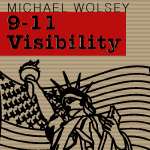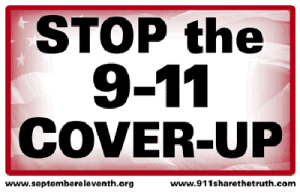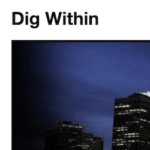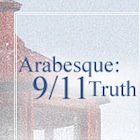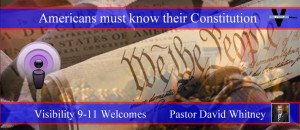A new investigation of 9/11 is needed, as all investigations so far have been superficial or corrupted, and have failed to meaningfully address significant issues. However, the Commission proposed by the Citizens 9/11 Commission Campaign will be unable to meaningfully address these issues, and there are significant problems with the Campaign itself; this essay will address three. First, state authority will be of little value in a 9/11 investigation due to the ‘sovereign immunity’ of the US federal government. Second, the Campaign and proposed Commission are not structured in a way that makes them accountable to the public; mechanisms are not built in to ensure the public has adequate oversight of the course of investigation, the use of funds and those entrusted with responsibility for these things — short of passing another ballot initiative, or petitioning their state legislature to act. Finally, the Campaign has made inaccurate and misleading representations: The proposed Campaign promotes itself as a way to circumvent the federal government’s failure to adequately investigate 9/11, but state-level authority does not meaningfully provide a way to do this. And, despite rhetoric to the contrary, the Campaign and the Commission do not truly represent direct democracy, as the Campaign Steering Committee and Board of Directors are self-selected and the commissioners would by chosen by them, not by the people. The first two points will be addressed in separate sections below, and the third point will be addressed in both sections.
I. State authority will be of little value in a 9/11 investigation, and the Campaign has made inaccurate and misleading representations concerning what is possible and feasible for the proposed Commission to accomplish.
The 9-11cc.org FAQ: Is the Citizens 911 Commission Campaign’s approach legally sound? states that, “Legislative Counsels of the states of California and Oregon … drafted the legal language,” and that in the case of Massachusetts (where the ballot initiative was certified) “Several attorneys review [a proposed initiative] for the Attorney General, who then certifies it as legal and constitutional.” Furthermore, “It is [Mike Gravel’s] guess that more than ten attorneys in three states, who do nothing but review initiatives and draft legislation for their respective legislatures, have thus acknowledged the legality of our proposed 9-11 initiative.” It may be the case that the initiatives comply with state legal and constitutional requirements, but this says nothing about a more important question; whether or not a state-level investigation has meaningful authority over federal government witnesses and records.
According to the Citizens 9/11 Commission Campaign FAQ: Who Chooses the New Commission? How Will It Operate? web page:
Q. Will the Commission have the power to subpoena suppressed evidence, like the videos of the Pentagon that have been classified and withheld by the FBI? Can we subpoena the CIA? The NSA? The Bush presidential archives? Can we call Bush to testify, or is he immune?
A. Yes, all of the above can be exercised by the Commission.
This answer is misleading. The states belonging to the federal union known as the USA do not have the power or authority to oversee the federal government, except through the members elected to Congress by those states. Subpoenas can be issued by a commission authorized to do under state law, but federal agencies are not obligated to comply with state subpoenas for federal records, due to the sovereign immunity of the US federal government:
The complete immunity of a federal agency from state interference is well established. United States v. Owlett, 15 F. Supp. 736, 741 – Dist. Court, MD Pennsylvania 1936
It has been long settled that the United States cannot be sued, either in federal court or in any state forum, unless it has waived sovereign immunity. … States and comparable entities are treated no differently than any other litigant. Indeed, the lower courts have repeatedly held that, absent a waiver, the United States cannot be forced to obey a subpoena issued by a state court, state grand jury, or state legislative committee. [emphasis added] Commonwealth of Puerto Rico v. US, 490 F. 3d 50, 71 – Court of Appeals, 1st Circuit 2007
Persons no longer employed by the US government or not subpoenaed in their official capacity would be in a different situation, if subpoenaed to appear before a state commission and submit to questioning under oath. However, as the “Who Chooses” FAQ acknowledges, the Commission will have little recourse should they fail to appear:
The more likely scenario, however, is that certain individuals and agencies that the Commission subpoenas (presumably those with something to hide) will refuse to respond. Little can be done about this unless any one of these officials enters the state whose powers are used by the Commission to issue the subpoenas.
In addition to those with “something to hide,” other witnesses might decline to appear if they believe that doing so might have adverse consequences, such as on their career path within the Establishment, or otherwise.
A related issue concerns evidence currently classified under federal law; state authorities cannot declassify and release this information. A subpoena does not authorize a witness to disclose classified information to people not cleared to receive it. Doing so would put the witness in legal jeopardy, and, as we have seen from the US government’s response to the Wikileaks disclosures, the US government may consider information to be classified even when it’s publicly available.
A state-level investigative commission is not in a much better position than any other type of organization or even an individual, as far as securing access to records and testimony. Any member of the public (or an organization) can request Mandatory Declassification Review (MDR) of classified records, or request/sue for records under the Freedom of Information Act (FOIA). An ever-growing number of 9/11-related government records obtained this way are available for free download at 911Datasets.org.
There are other problems limiting the already limited effectiveness that a state-level 9/11 investigation would have. Commissions are regularly authorized under federal and state laws to conduct investigations, and issue reports and recommendations. Sometimes a commission’s findings are influential and their recommendations are adopted, but in many cases they are challenged, or simply ignored, and ultimately have no substantive effect. This is frequently the case when the findings or recommendations are not favored by the economic, social and political elites that control the federal government, most state governments and most of the major media, as would be the case with any findings that undermine the official 9/11 narrative. As noted in the “Who Chooses” FAQ, “the report itself does not have binding legal power.” A state commission may find many experts and witnesses willing to give testimony under oath – many have spoken at many 9/11 conferences. However, it is questionable whether this would significantly increase the amount of consideration given to a commission’s findings. Referrals for indictments can be made, but state, federal or international prosecutors are under no obligation to pursue them, or to investigate.
On its About page, the Campaign implies the Commission would be “free of governmental interference.” However, in most states, state legislatures can tamper with or overturn citizen initiatives. In Colorado, the primary state currently being targeted by the Campaign, an initiative can be overturned by a simple majority vote in the legislature. In North Dakota, a secondary target, a 2/3 majority is required. In Massachusetts, where the effort has been postponed until 2013/14, all that is needed is a simple majority. It might be argued that representatives in the legislature risk incurring the public’s wrath by doing so, but a persuasive case could be made to the public that the initiative would be a waste of taxpayer resources, given states’ lack of authority over the federal government. In Appendix A of the “Strategic Plan” the Campaign acknowledges some of this information, concerning some of the states addressed.
Most Establishment Democrats and Republicans and mainstream journalists are committed – either through ideology, corruption or moral/psychological weakness – to the official 9/11 myth and to Establishment rule/ideology in general. It is to be expected they will work to undermine voter support for a state-level 9/11 investigation prior to passage of a law, and, should a law be passed, to undermine the integrity of any new 9/11 investigation, as well as any findings produced that significantly contradict the official 9/11 myth – without regard to the facts or the public interest in truth and justice. Unless and until the People, in sufficient numbers, reject domination and control of government, economy and society by big business and elites, and replace the Establishment’s federal representatives with true public servants, there is little possibility of an honest investigation of 9/11.
The “Who Chooses” FAQ acknowledges the limited potential effectiveness of the Commission with repeated references to the importance of “public opinion” and “public pressure.” However, the public can be mobilized to take action within or outside the system without a state-level commission, and there’s no evidence a largely ineffective commission would be conducive to educating, organizing or mobilizing the public concerning accountability for 9/11. Rather, a commission (and the campaign to create one), by requiring substantial time, energy, money and other resources from the public, will detract from potentially more effective efforts.
II. Contrary to representations that have been made, the Campaign and proposed Commission are not structured in a way that makes them publicly accountable, nor does the Commission truly represent direct democracy, as the commissioners would not be chosen by the people.
A short history of the Campaign’s activities demonstrates why accountability and public oversight are needed: In October 2010, Mike Gravel began fund-raising for a 9/11 investigation by California state ballot initiative; at this time no draft initiative text or proposed outline for a commission/investigation had been publicly presented. By May 2011, according to draft minutes of a conference call, Mike Gravel was abandoning the California effort as it was “hard to do because persons being placed on a Commission required a constitutional change,” and that Oregon and Alaska “were the focus efforts for the November 2012 election.” In August 2011, the Campaign filed a petition for the 2012 election in Massachusetts, and during that time publicly stated it was seeking to raise $100,000 in conjunction with this effort. Recently, the Massachusetts effort was postponed to 2013/14, as there is neither time nor funds to gather the required number of signatures to place the initiative on the ballot. Instead, the Campaign now seeks to raise $1.12 million to fund campaign signature gathering and promotion in Colorado and North Dakota. This apparent lack of foresight and preparation is disturbing — and even more so as, currently, over $1 million is being solicited from the public.
The public that supports the Campaign and the proposed Commission has little to no oversight over either one, as they are currently organized. The Campaign Steering Committee and Board of Directors are currently composed of four self-selected members: Mike Gravel, Byron Belitsos, Ken Jenkins and George Ripley. According to the “Who Chooses” FAQ, these members will, at their discretion, “expand the Steering Committee to include the leaders of the initiative campaigns in the enacting states.” The “Who Chooses” FAQ also says the steering committee will choose the commissioners who will lead the 9/11 investigation. So does the petition filed in Massachusetts for 2012, which is a template for the Colorado and North Dakota initatives (see Appendix A, Strategic Plan), as well any other state the campaign targets — including Massachusetts in 2013/14: “The Citizens 9/11 Investigation Commission Campaign Steering Committee, incorporated in the State of California, shall select 15 or more persons to serve as the initial members of the commission.” The Campaign has called this a “people’s investigatory Commission that is directly elected in a statewide election” (“Who Chooses” FAQ), but this characterization is inaccurate; the people are not electing the commission. Rather, the people would be passing, by popular vote, a law authorizing a self-selected group of people to select another group of people to lead the commission. As neither the Campaign nor the proposed Commission are directly elected by the public, the public has no way to hold them accountable — such as by removing or replacing members — for their conduct of the campaign, investigation, use of funds and representations made to the public.
According to its recently issued Strategic Plan, the Campaign is seeking to incorporate as a 501c4 non-profit organization, and will be posting its articles and by-laws at the website at some point. It has not disclosed whether it will be creating a membership process with the board of directors and steering committee subject to election; if it does, this would create a measure of accountability and public oversight for the Campaign. The Commission members, however, would still be accountable only to the Campaign. The Campaign has made some budgeting and accounting information available on its website, but it is not obligated to do so; if it succeeds in incorporating as a non-profit, it will be required to report certain kinds of financial and other information.
Another problem is that the initiative petitions, as drafted (see Strategic Plan, Appendix A and Massachusetts petition), do not require the proposed Commission’s administrative, financial and investigative records, or its meetings and hearings, to be open to the public; the text simply says the Commission is to issue a report, which is to include information in certain categories (see Section 2(4)). It may be that the respective states have disclosure and reporting requirements, but the interest of transparency and accountability, detailed disclosure and reporting requirements for a 9/11 investigative commission should be incorporated into any law authorizing one.
Even if the issues outlined in this Section II are adequately addressed, the effectiveness of a 9/11 investigation under state authority will be very limited, as established in Section I above. The main point of this section is to document that, despite the Campaign’s statements about direct democracy and people power, the organizers of the Citizens 9/11 Commission Campaign have not trusted the people with the power; instead, they have reserved it to themselves.
III. Conclusion
To summarize:
1) Regardless of what state an initiative is passed in, the commission proposed by the Citizens 9/11 Commission Campaign will be largely ineffective due to the US federal government’s sovereign immunity, and the discretion of state legislatures and attorneys general.
2) Even if a state investigation could be effective, the Campaign and proposed commission are not structured in a way that makes them publicly accountable. They do not truly represent direct democracy, or a circumvention of the Establishment and governmental processes.
3) The commission’s potential has been inaccurately represented by the Campaign. The law proposed would not well serve the cause of truth and justice for 9/11, and the Campaign and the Commission will consume a great deal of time, money and other resources, that would be better spent on educating, organizing and mobilizing the public to effect change through the system, and through non-violent direct action.
A new investigation of 9/11 is needed to establish truth and justice; to determine exactly what happened before, on and after the 9/11 attacks and who all the responsible parties are, and to hold them accountable. If the People take back control of the US government from the Establishment through the electoral process, this could be accomplished by a Congressional or criminal investigation. A truth and reconciliation commission is another option. At some point, if the balance of international power becomes more even, as a result of US economic decline and/or the development of other nations, an international coalition or court may be able compel disclosure and accountability concerning 9/11. This is an imperative for the international community as the false pretext of “9/11” has been used to justify the continuing ‘war on terror’, military interventions in Afghanistan, Iraq and elsewhere, and has led to the death of well over a million civilians, and the rendition, torture and indefinite detention of hundreds, perhaps thousands of people.
Various public opinion polls have shown there is broad dissatisfaction with the “two-party” monopoly, as well as broad skepticism regarding the official account of 9/11. A new investigation is not needed to understand that the official US government account of 9/11 is false, even fraudulent, and that the Establishment is unable or unwilling to confront this truth and establish justice. These websites provide plenty of evidence of this: The Complete 9/11 Timeline hosted by HistoryCommons.org; 911Research.WTC7.net; 911Review.com; STJ911.org; Journalof911Studies.com; AE911Truth.org. Simply acknowledging the inadequacy of the official account and calling for a new investigation undermines the Establishment’s mere appearance of legitimacy, and it reduces the power that “9/11” has over the human psyche. People can make decisions based on this knowledge, such as by boycotting Establishment politicians and media, and supporting alternatives through speaking, writing, voting, spending, organizing and other forms of activism.
See Each of our Individual Voices Is More Important Than We’ve Realized and The False Logic of Hopelessness (Why the Elephant Should Stand Up to the Mouse) by George Washington.
